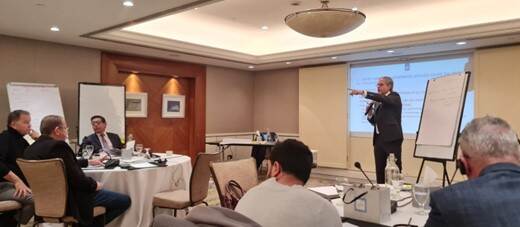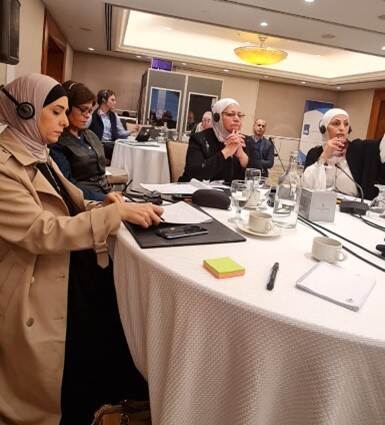Jordan: Roadmap for Agriculture
Jordan has seen major paradigm shifts in agriculture over the past 15 years. The war in Syria, followed by the corona pandemic, the war in Ukraine and the recent conflict in Gaza have made some of the previously dominant export markets inaccessible, hindered supply chains, significantly increased the population in Jordan and (therefore) put an enormous pressure on the responsibility for local food security. The effects of Climate change have become more apparent in the form of reduced rain fall and higher evapotranspiration leading to significant water shortage throughout Jordan. Government has had to step in to mitigate these challenges. But as the situation starts to ‘normalize’, are current projects still addressing society’s needs?
The Dutch Government, represented by the Agriculture team, the Agricultural Counsellor to Egypt & Jordan and the Agricultural Advisor, was requested to reflect on Jordan’s National Agricultural Development Strategy in order to address possible missing links within this National Strategy, which is referred to as the ‘Roadmap for Agriculture’.
In January 2024, the Dutch embassy hosted a 2-day workshop with representatives of the Ministry of Agriculture, Research institutes and sector bodies. This meeting was in response to earlier discussions with H.E Eng. Khaled Hunaifat, Minister of Agriculture, where we discussed organising a moment of reflection on Jordan’s National Agricultural Development Strategy in order to address possible missing links within this National Strategy. During the meeting with the minister this reflection was dubbed the ‘Roadmap for Agriculture’.
The workshop was a co-production between the Dutch agriculture team at the embassy and the Secretary General Assistant for Projects and Rural Development.

Given the broad scope of the National Agriculture Development Strategy, the lens of Stakeholder Needs was taken as tool to assess the strategy. The workshop was designed to address a number of fundamental challenges within the agricultural domain. Starting at the factors that motivate or drive the stakeholders – their Needs – were seen as the most comprehensive route to understanding discrepancies between (business, society/governmental and consumer-) needs and the project portfolio given within the National Strategy.
During the workshop, needs and requirements were identified of the 4 main stakeholder-categories in the food system: producers, supply chain, society/government and consumers. By observing these needs with a wide panel of policy-developers a number of challenges were observed that are currently not addressed in (governmental and donor-led) programs:

1. The role of government and the private sector, where government has taken on more roles in the food system over the past years. The current un-met expectations both ways, and perceived roles between Government and the private sector need to be further studied in terms of its persistence and (un-)desired consequences, and consequently addressed.
2. A wider discussion seems appropriate on the focus on export (EU) of high-value crops for capital gain. This export-driven approach seems at odds with the (geopolitical, climatological and business) competitive (dis)advantage of Jordan Agriculture on the international market and does not align with the ambitions for Local & Regional food hub, targeting the home market and neighbouring countries.
3. Further learning, action-studies and policy and business intervention is needed for further cooperative development.
4. To improve access to market (local AND regional markets) for small holder farmers as well as larger producers, by addressing the current framework, including the centralised position of the wholesale markets. Further steps would be to facilitate cold-supply chain development and innovation (through cooperatives and SME-development).
Subsequently, a meeting with the minister and MoA representatives took place, where few action points were agreed upon as follow-up:
- A workshop on Governance; what intervention perspectives are we working on? How are things connected? Where is a logical alignment?
- A workshop on Cooperatives: what is exactly the issue that prevents cooperatives to start/be successful? What would be requirements for alternative legislation/practices/facilitation/...? What needs to be done?
- Analysis on the business climate in Jordan, through developing a questionnaire and conducting interviews with Dutch companies: what limits your investment/trade strategy in Jordan? (Dutch companies)